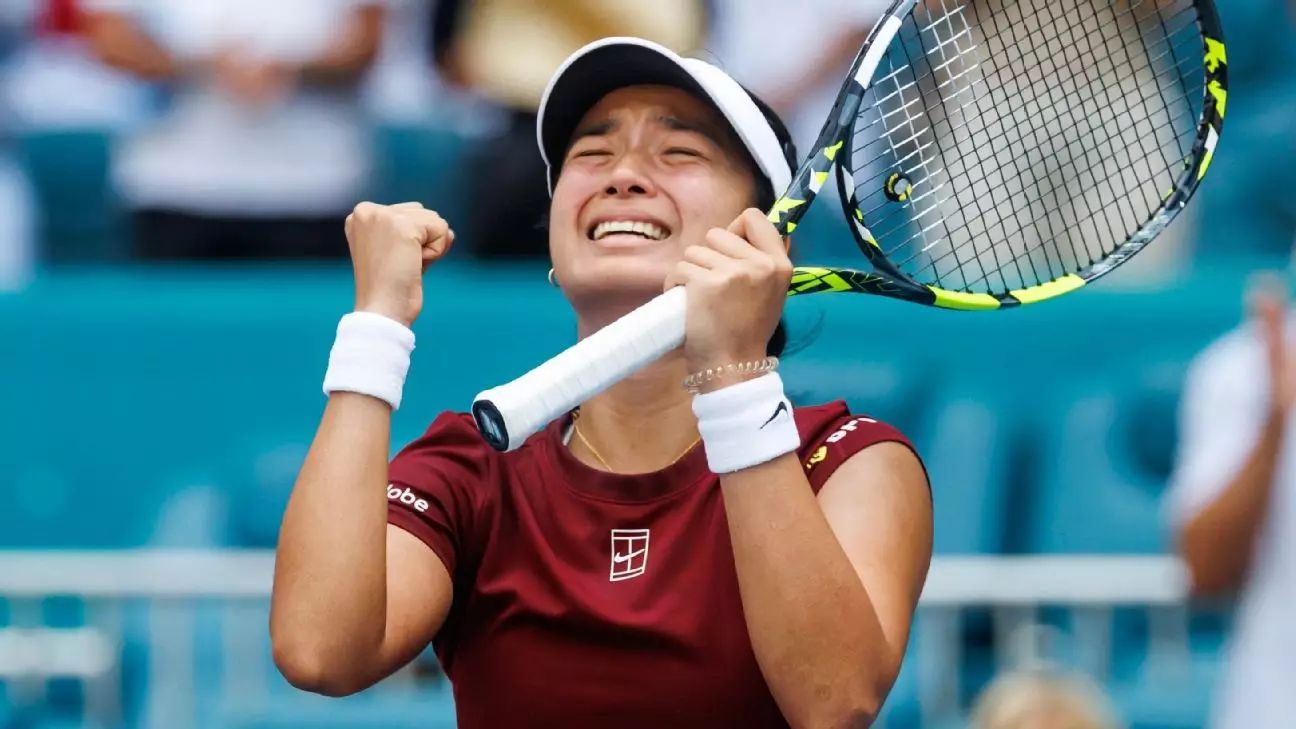In a stunning turn of events at the Miami Open, 19-year-old tennis prodigy Alexandra Eala carved her name into the sport’s history by defeating Iga Swiatek, a celebrated five-time Grand Slam champion. The match, which unfolded with Eala dominating the scoreboard 6-2, 7-5, showcased not just an athletic triumph but a remarkable narrative of perseverance and aspiration against formidable odds. Ranked a modest 140th in the world, Eala’s victory over the second-seeded Swiatek is not just a victory for her, but a monumental moment for tennis fans and aspiring athletes, particularly in the Philippines.
Breaking Barriers and Making Waves
Eala’s journey to the semifinals of this elite WTA 1000 event is an inspiring tale of hard work and dedication, particularly for an athlete representing a country where professional tennis has historically been a challenge. She is currently the sole Filipino competitor on the global tennis scene, and her performance has set the stage for a broader impact—one that can galvanize interest in the sport back home. By defeating renowned players like Jelena Ostapenko and Madison Keys, Eala isn’t merely progressing in the tournament; she is sending a loud and clear message that talent knows no geographic boundaries.
Emotional and Strategic Mastery
Throughout her quarterfinal clash, Eala demonstrated not only emotional resilience but also tactical intelligence. Her ability to break back after initially losing her serve exemplifies her mental toughness, an essential trait for success at such high levels. The match lasted just under two hours, but Eala managed to compress a lifetime of ambition and preparation into those crucial moments on the court. “I really tried to soak it all in”, she reflected, emphasizing her awareness of the significance of the moment. The depth of her feelings reflects a maturity beyond her years, revealing a young woman who recognizes that she can inspire others through her successes.
The Importance of Representation in Sports
Eala’s recent achievements underscore the critical role that representation plays in sports. By succeeding as a Filipino, she provides a beacon of hope for aspiring players in her home country and beyond. “That’s the only thing I can do to give back to my country,” she said, demonstrating an understanding that her influence extends far past the tennis court. For Filipino youth, Eala embodies the potential for greatness and the possibility of breaking into a world that has often seemed exclusive or out of reach.
A Promising Future Awaits
With her stunning victory over Swiatek, Eala is set to face either Jessica Pegula or Emma Raducanu in the upcoming semifinals. Regardless of the outcome, her presence in high-stakes matches promises to disrupt the status quo in women’s tennis. As she continues to seize opportunities, Eala represents a new generation of athletes willing to challenge the norms and expectations that have historically defined the sport. With each match, she brings the weight of her aspirations and the hopes of a nation, and if Wednesday’s performance is any indicator, the world should brace itself for more extraordinary feats from this remarkable young talent.

